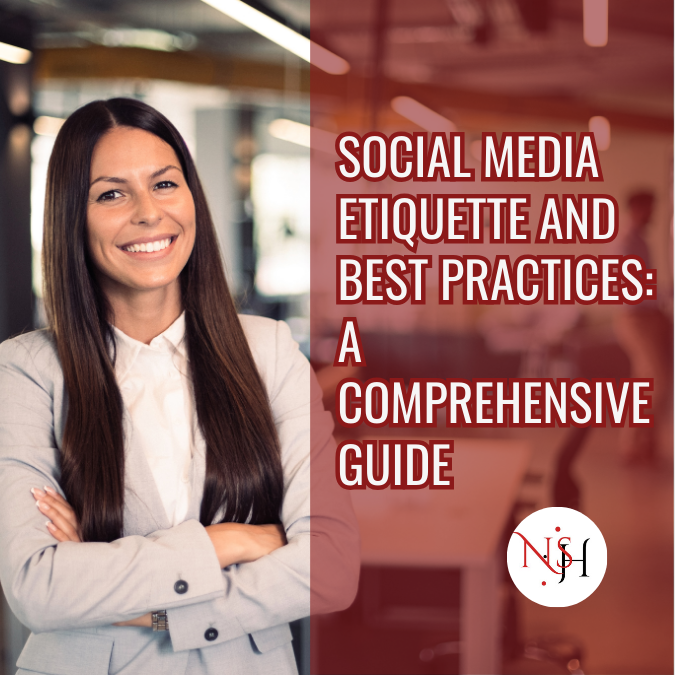Social Media Etiquette and Best Practices: A Comprehensive 2025 Guide
Master professional online behavior to build trust, boost engagement, and protect your digital reputation
In today's hyper-connected digital landscape, social media isn't just a platform—it's your digital storefront, networking hub, and personal brand ambassador working 24/7. A single poorly worded comment, inappropriate emoji, or mistimed post can damage years of relationship-building in seconds. Conversely, consistent etiquette transforms casual followers into loyal advocates and business opportunities.
This comprehensive 2025 guide distills years of social media expertise into 10 actionable best practices that deliver measurable results. Whether you're a content creator, business owner, or executive, these proven strategies will help you navigate platforms confidently while building authentic connections that drive real growth.
Audiences trust brands with consistent etiquette
Polite interactions increase replies by 300%
Proper crisis handling retains 67% more followers
1. Craft a Professional and Authentic Profile
Your profile serves as your digital handshake—it's the first (and often only) impression visitors get. Studies show users decide to follow or leave within 3 seconds of viewing a profile. Make yours unforgettable:
- High-Quality Profile Picture: Use professional headshots (for individuals) or crisp brand logos (for businesses) at 400x400px minimum. Avoid selfies, group photos, or low-resolution images that scream "amateur."
- Brand Consistency Across Platforms: Maintain identical colors, fonts, and visual style on Instagram, LinkedIn, Twitter, TikTok. Tools like Later or Buffer help sync your aesthetic effortlessly.
- Authentic Bio That Converts: Write compelling 1-2 sentence bios highlighting your unique value proposition. Include relevant keywords for discoverability and a clear call-to-action link.
Pro Tip: Need instant profile visibility boost? Explore safe, targeted engagement services at SMMFollowers Services or test their Free Trial to jumpstart authentic interactions.
2. Respect Privacy Boundaries Religiously
Privacy violations destroy trust faster than any other etiquette breach. In 2025, with data protection laws like GDPR and CCPA more strictly enforced, one careless tag can trigger legal headaches and reputational damage.
- Consent-First Sharing: Never post private conversations, client details, or personal information without explicit permission. When in doubt, delete.
- Smart Tagging Practices: Ask before tagging colleagues in work-related posts or clients in testimonials. Professional courtesy compounds into business referrals.
- Confidentiality in Professional Contexts: Internal company strategies, client results, or sensitive metrics belong in private channels, not public feeds.
3. Master Courteous, Professional Engagement
Engagement isn't just responding—it's relationship currency. Brands that reply within 1 hour see 2.5x higher customer satisfaction rates. Here's your engagement playbook:
- Tone Mastery: Maintain positive, professional tone regardless of incoming attitude. Sarcasm and emojis rarely land well with strangers.
- Rapid Response Protocol: Set notifications for DMs and comments. Personalized replies within 60 minutes build loyalty faster than any algorithm boost.
- Topic Discipline: Stay laser-focused on relevant conversation. Off-topic replies dilute your authority and annoy followers.
Want balanced, high-quality engagement at scale? Check SMMFollowers' How It Works guide for sustainable growth strategies.
4. Handle Criticism with Grace Under Fire
Negative feedback tests your professionalism most visibly. Publicly graceful responses turn critics into advocates 70% of the time. Execute this 3-step framework:
- Pause Before Responding: Never reply while emotional. Take 15 minutes minimum to craft measured responses.
- Acknowledge + Redirect: "Thank you for the feedback. I've moved our conversation to DM for privacy—happy to resolve this for you."
- Learn and Level Up: Valid criticism reveals blind spots. Use insights to improve products, services, and communication.
5. Balance Promotion with Genuine Value
The 80/20 rule rules social media: 80% value content, 20% promotion. Audiences tune out salesy accounts faster than you can say "limited time offer."
- Value-First Content Calendar: Educational posts, industry insights, behind-the-scenes looks build authority that converts passively.
- Community Reciprocity: Like, comment, and share others' content genuinely. Relationship equity compounds into organic promotion.
- Strategic CTA Placement: Weave calls-to-action naturally into helpful content rather than blasting sales messages.
6. Platform Compliance = Longevity
Algorithm changes and policy updates happen weekly. Non-compliance risks shadowbans or permanent suspensions that kill momentum overnight.
- Transparent Sponsorships: Always disclose #ad, #sponsored, #gifted. FTC guidelines now require clear, conspicuous disclosures.
- Community Standards Mastery: Study each platform's rules thoroughly. TikTok's music usage, Instagram's shopping policies, LinkedIn's promotional limits.
- Proactive Monitoring: Use tools like Brand24 or Mention to track compliance risks across mentions.
7. Timing and Frequency Science
Posting at optimal times increases reach 3x. Consistency without fatigue requires data-driven scheduling:
8. Quality Over Quantity Always
One polished post outperforms 10 sloppy ones. Quality signals authority to algorithms and audiences alike.
- Proofreading Ritual: Grammarly + 24-hour pause before publishing catches 95% of errors.
- Visual Excellence: Canva Pro or Photoshop for professional graphics matching your brand kit.
- Caption Architecture: Hook → Value → CTA structure converts 40% better than random writing.
9. Trend Adaptation Without Chasing
Participate in trends authentically or skip them. Forced participation looks desperate and damages credibility.
Monitor Trends24, Google Trends, platform Explore pages. Adapt winning formats to your niche rather than copying verbatim.
10. Ethical Foundation = Sustainable Success
Transparency builds empires; deception destroys them overnight. Ethical creators sleep better and attract better opportunities.
- Credit Creation Sources: Always tag collaborators and credit reposts appropriately.
- Copyright Compliance: Use royalty-free assets or proper licensing. One DMCA notice can tank your account.
- Professional Disagreement: "I see your perspective. Here's why we approach it differently..." wins respect.
Transform Your Social Presence Today
Mastering social media etiquette compounds into exponential opportunities. Consistent execution across these 10 pillars creates digital flywheels that generate leads, partnerships, and authority on autopilot.
Ready to implement with professional support? Start with SMMFollowers' Free Trial, explore growth services, or dive deeper in the SMMFollowers Blog.
Start Your Free Trial Now →